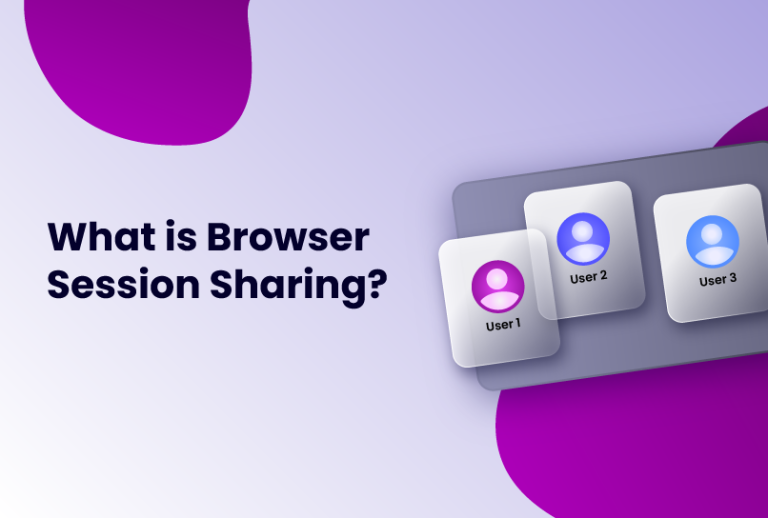You are wondering how to make money with affiliate marketing. You heard claims that it is a great way to earn passive income without sweat. This might be true, but affiliate marketing is not exactly as easy as picking up a stone and throwing it into the air. There are several things you must know before you get started.
You're on the right page to know everything you need to start. In this article, we will discuss what affiliate marketing is, its ups and downs, and what you should know about getting started.
What is Affiliate Marketing?
Affiliate marketing is when you promote the product or services of another person or company in exchange for a commission when the product is sold. In official lingo, you're the publisher or the affiliate marketer, while the company or person that owns the product is the merchant or advertiser.
Affiliate marketing on the Internet started as early as 1994. In 1996, Amazon started its Amazon Associate Program, their form of affiliate marketing, in addition to the development of tracking systems like cookies, digital marketing, and analytics, popularized the marketing strategy. Now, the marketing system is an intrinsic part of e-commerce and the modern internet experience. 15% of the revenue of digital media business comes from affiliate marketing.
3 Types of Affiliate Marketing

Affiliate Marketing is practiced in three different ways:
- Unattached affiliate marketing,
- Related affiliate marketing, and
- Involved affiliate marketing
The types are determined by affiliate marketers' ties to the products they market.
1. Unattached affiliate marketing
The unattached affiliate marketer has no ties whatsoever to the products except that they get paid to sell them. They do not use the products, nor do they have any authority or expertise to make claims about the use of the product. It requires no commitment and little work for the marketer. They just have to post the affiliate links and hope shoppers follow the link to make their purchase.
2. Related affiliate marketing
When you promote products you don't use but have one kind of relationship with it; it is called related affiliate marketing. Your relationship with the product may be in the form of a connection to your niche or your services. Consider a scenario where you run a fashion blog and do affiliate marketing for a shoe company. You don't have to wear the shoes before you can convince people to buy them. This adjacent relationship gives you enough influence to woo consumers to buy the product through your affiliate links.
3. Involved affiliate marketing
When you practice this kind of affiliate marketing, as the name suggests, you have strong ties with the product you market. It means you have used the product and have the authority to recommend the product to prospective customers. Using our earlier example of a fashion blog, it means you have worn the shoes, or you still use the shoes. This gives you even more credibility with your audience, and thus you would be able to convert more of them to customers.
Pros And Cons of Affiliate Marketing
Before we discuss the pros and cons of affiliate marketing, let's answer this question: How do affiliate programs work? Affiliate programs involve three stakeholders with different but connected responsibilities —the merchant, the affiliate, and the consumer. The merchant provides the product, and the affiliate markets it to the consumer, who buys it to complete the chain. When the chain is complete, the affiliate gets paid a token, called commission, by the merchant. This explanation is a simplified version of what goes on in an affiliate marketing scheme. However, with it, we have insights into how the operation works and the associated benefits and risks.
Pros
Easy to execute
Both the affiliate and merchant can fulfill their sides with little stress. As an affiliate, all you need to do is to set up an avenue through which you will reach consumers. You don't have to worry about fulfilling the orders or creating a product that consumers need.
Low costs and risks
You don't need any investment upfront to get started. Consequently, there is nothing to lose if you decide to quit. The bulk of your investment would be to get customer traffic to your affiliate links. You can be assured of a steady paycheck once you set it up.
https://mylead.global/sl/GCgszo
Flexibility
As long as you have internet access, you can work anytime and from any location. Choosing a well-developed affiliate network, like MyLead, can give you access to thousands of affiliate offers divided into several categories and remuneration models, which make you decide what exactly you want to make money on.
Cons
Requires patience
Setting up traffic to your affiliate link is a slow process. It is not a get-rich-quick scheme as some may portray it. Building enough customer traffic through your affiliate link requires dedicated time and patience.
Stiff Competition
A successful affiliate marketing program would have many people like you trying to sell the same products. Also, the program would operate by strict rules on how to generate leads. It is difficult to stand out among fellow affiliates, especially if you don't have a pre-existing audience.
Lack of control
You have no influence over how a business fulfills a given product or service. A bad affiliate referral can ruin your credibility with your followers, so do your homework and choose quality businesses.
Types of Affiliate Marketing Channels

Affiliates market their products in a variety of ways on the internet. They use existing marketing techniques and adapt them to the internet landscape to achieve their aims. Here are some affiliate marketing channels:
Social Media Influencing
Individuals with large followings on social media often use this influence to attract potential customers for their merchants. Such individuals are rife on visual-intensive platforms like Instagram and Tiktok. Affiliates can talk about and display their products to their followers and ask them to buy. This channel is common with popular affiliate marketing of products like clothes, food items, and electronic gadgets.
Blogging
With this channel, affiliate marketers drive traffic to their sellers through content that promotes the brand and products. Bloggers deal primarily with text and they use SEO tactics to increase their visibility to web users. A large chunk of internet users accesses the internet via search engines like Google. They seek information about their interests or emergencies. When Google leads them to your blog, the more relevant information you provide on your blog, the more likely they are to buy your products when they find your blog.
Vlogging
This is similar to blogging, but it replaces text with video content. This method is particularly powerful if the video content illustrates your product benefits. Internet users love video. YouTube validates this with its 361 million daily active users. Your video content can be how-to videos, reviews, or even recommendations. You will only add your affiliate links to the video so the interested viewer can purchase the product.
Email Marketing and Newsletters
Email marketing is personal, and it has the highest conversion rate, about 66 percent. The content of the mail may be purely promotional. It can also be a newsletter that includes affiliate links to products. Regardless of the format, the mail is tailored to fit the individual's interest and influence them to make a purchase.
Website Advertising
This involves using ads, sponsored posts, banner ads, and contextual linking on web pages to market your products. Your company website is the channel here. You can also do affiliate marketing via microsites. Microsites are different from your company website. They are small branded content web pages or content hubs that can be included in your website or not. You can create and display them on search engines or related websites.
Best Tips for Affiliate Marketers

Now, let's discuss some tips on how to get started in affiliate marketing.
Build and Maintain Trust
Trust is the foundation of all successful affiliate marketing efforts. While there appear to be a lot of products or services to promote, it is best to emphasize only those that you use or would recommend. Even if a product interests you or fits into an existing hobby, becoming a great marketer for that product requires a significant amount of effort.
Identify a niche
Don't try to sell every product. It is not sustainable. You lose credibility with your audience if you sell different products within different categories. Working with products within a specific niche helps you come across to potential customers as authentic and trusted. Working with products you are knowledgeable and passionate about is the key to success. When you can establish yourself as an expert in one field, it is easier to convince your audience to buy the products. It also increases your chances of getting people who are likely to buy the products.
Build a viable audience
Without the customer, an affiliate marketing chain is incomplete. Also, stiff competition and little space for differentiation in the industry make it challenging to thrive. However, those succeeding in the industry have it obvious that you need to cultivate an audience that's dedicated to you and your content. If you can get a sizable number of people who resonate with you, you're setting yourself up for success as an affiliate marketer.
Use several channels
If you can, it is advisable to try different digital marketing strategies and channels to see which ones your target audience responds to the best. Create a blog. Reach out to your audience on social media. Create an email campaign. Create landing pages and post on review sites. These things broaden your customer reach and increase your chances of higher revenue.
Using Multiple Accounts For Affiliate Marketing

As an affiliate marketer, you would require multiple accounts on the same platform to run successfully. For example, managing multiple Facebook accounts for brands and businesses is essential. You wouldn't want your quips mixed with your professional content. Also, it helps you keep a stamp of authenticity on your business.
There are limits to which you can operate these multiple accounts before it gets cumbersome if you don't use the right tools. Managing multiple Twitter accounts via a regular web browser won't help much when you use more than five accounts. This is because Twitter allows a maximum of five accounts via a single IP address. Using proxies is also a no-no because it will eventually get you banned.
Using Incogniton can help you solve that problem. Incogniton is an anti-detect web browser with a built-in capacity to run multiple accounts. Each account or user profile gets a unique browser fingerprint. A browser fingerprint is a set of parameters that websites use to identify their users in association with IP addresses. With Incogniton, you can create and manage multiple accounts with different browser fingerprints and thus, achieve your aims.
Affiliate marketing is a terrific way to earn a supplemental income with little stress. You can capitalize on your passion projects and make more money with them. More financial power means you can fulfill a lot more desires. However, getting started on the right foot is essential.




